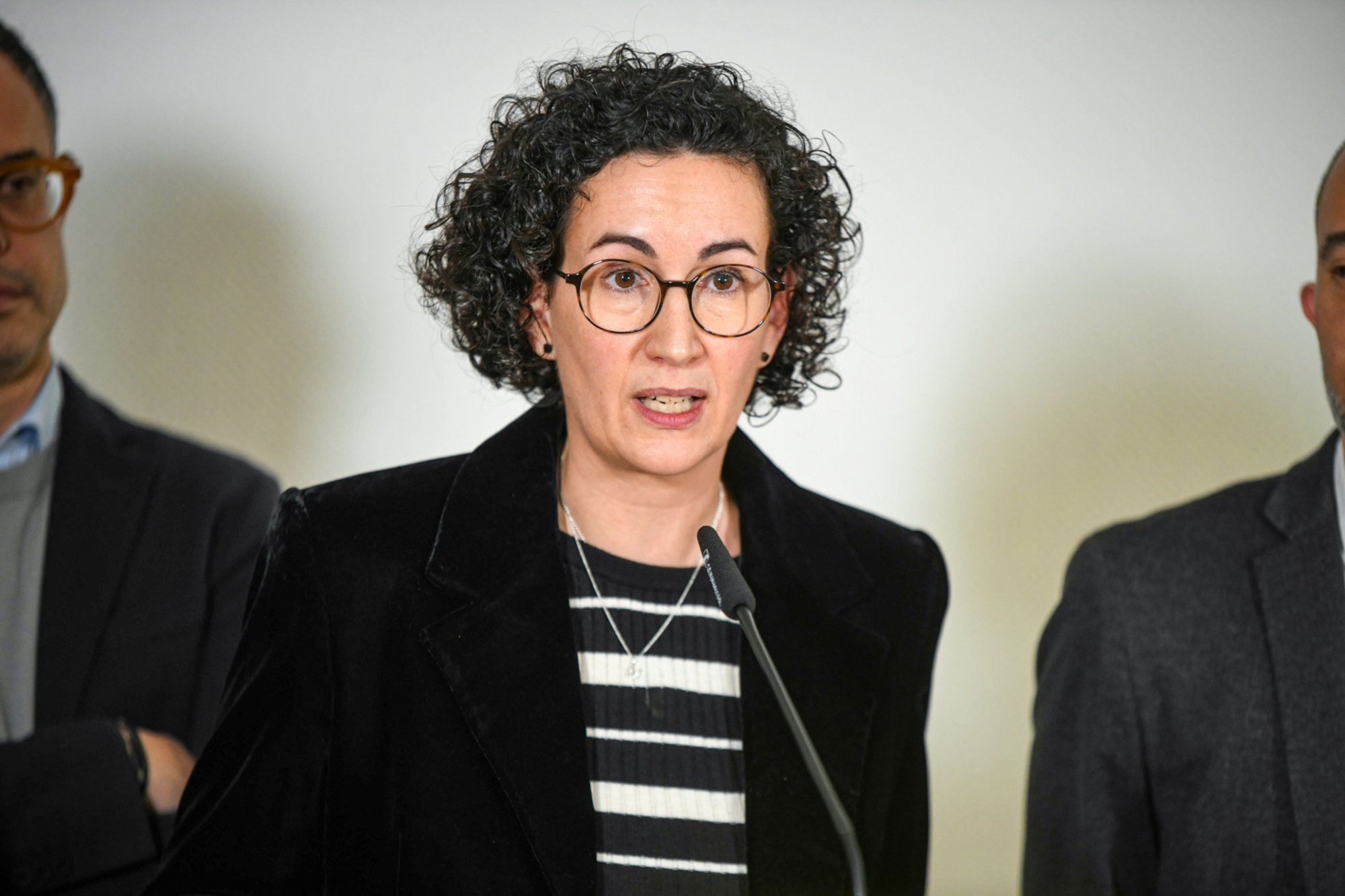The United Nations has once again taken Spain to task over the repression of the Catalan independence movement. In response to a communication from the Catalan Republican Left (ERC) party's secretary general, Marta Rovira, in which she denounces arbitrary arrests, judicial and political persecution and intimidation against party representatives, five UN special rapporteurs have asked the Spanish state for explanations about the measures that it has adopted to "put an end to all kinds of persecution and stigmatization" against ERC members as well as demanding information on the treatment they have had from the judiciary and on the measures taken to ensure that all political parties can carry out their functions freely.
The report includes the cases of Rovira and the president of ERC, Oriol Junqueras, as well as former minister Raül Romeva, MPs Josep Maria Jové and Lluís Salvadó, former speaker of Parliament Roger Torrent, and the MEP Jordi Solé. The rapporteurs express concern about the information received about reprisals over the exercise of a right, and about the use of the justice system and state financial auditing power to prosecute political leaders and members of civil society who sympathize with ERC. "We are concerned that these actions of criminalizing people who are exercising their civil and political rights will become a systematic pattern, since, if confirmed, they could constitute a serious violation of freedom of association and peaceful assembly," warn the UN experts.
Explanations
Given this situation, they demand from the Spanish state, in a communication dated February 8th, information on the measures adopted "to put an end to all kinds of persecution and stigmatization against persons belonging to ERC, especially the persons cited"; also on measures to "guarantee due process, and in particular the right to an effective defence and to an impartial, transparent, effective and prompt trial" against all of them. It also requests information on the factual and legal basis of the arrests and the charges brought against the leaders cited and how they are compatible with international human rights principles.
The document, in Spanish, from the Office of the UN High Commission for Human Rights signed by the five rapporteurs.
The text, which quotes from the 2021 Council of Europe report which demanded the release of the Catalan political prisoners and the return of the exiles, demands specific information about Junqueras and Romeva, and whether they were offered a more lenient prison regime and privileges if they were prepared to repent their actions, which were linked to their political views. The UN document also seeks information on the proportionality of the penalty of disqualification from holding office that was imposed on these two.
Five rapporteurs
The rapporteurs, who demand information on the way in which the crimes of sedition, misuse of funds and rebellion are defined, seek data on the measures adopted "so that all political parties carry out their functions freely and their members can carry out their duties activities in a safe and conducive environment, free from interference, including alleged cyber espionage," referring to the Pegasus spyware surveillance case.
The report is signed by the special rapporteur on the rights to peaceful assembly and association, Clement Nyaletsossi; the vice chair of the Working Group on Arbitrary Detention, Mumba Malila; the special rapporteur on the promotion and protection of the right to freedom of opinion and expression, Irene Khan; the special rapporteur on the independence of judges and lawyers, Margaret Satterthwaite; and the special rapporteur on the promotion and protection of human rights and fundamental freedoms in the fight against terrorism, Fionnuala Ní Aoláin.

